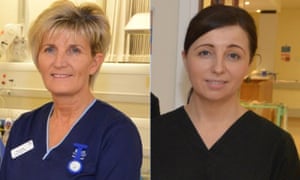First emergency admissions department joins campaign

Tracy Dodd The importance of the support of relatives and carers for people with dementia was vividly brought home to us recently. We were helping a patient with dementia, whose daughter was his main carer. She was distressed that she had been separated from her father for the 45 minutes needed for vital treatment, including an electrocardiogram, blood tests and intravenous fluids.
We had felt satisfied with how we had done our job, but her worries suddenly made us see it from a different point of view, that of the anxious carer and of the vulnerable and frightened patient. We would never separate a child from their parent for that period of time, so why should it be any different for a person with dementia, who takes comfort from seeing the familiar faces of relatives and carers? Forty-five minutes is a short time – but it can feel painfully long for those who are confused and vulnerable. We need to be empathetic in the way we treat our patients and their families.
That’s why we’re so pleased to join John’s Campaign. We have already had positive feedback from carers. The daughter of one patient wrote a letter to praise the calm, respectful and reassuring assessment and treatment her elderly mother was given. Later, they were allowed to stay together in a quiet side room while they waited for an ambulance to take them home, and she believes that the efforts to reduce the stress of the visit helped her mother resettle at home with no deterioration in her condition.
Jacqueline Young Very many frail older people are admitted to the unit and my role involves identifying and assessing those patients. A crucial part of this process involves contacting families or care homes. Sometimes, carers are not used to this level of communication and may be unsure why they are being involved. But if we communicate clearly and with compassion, they are grateful for the opportunity to share relevant information about their loved-ones and to be recognised as a valuable part of the team of support.
